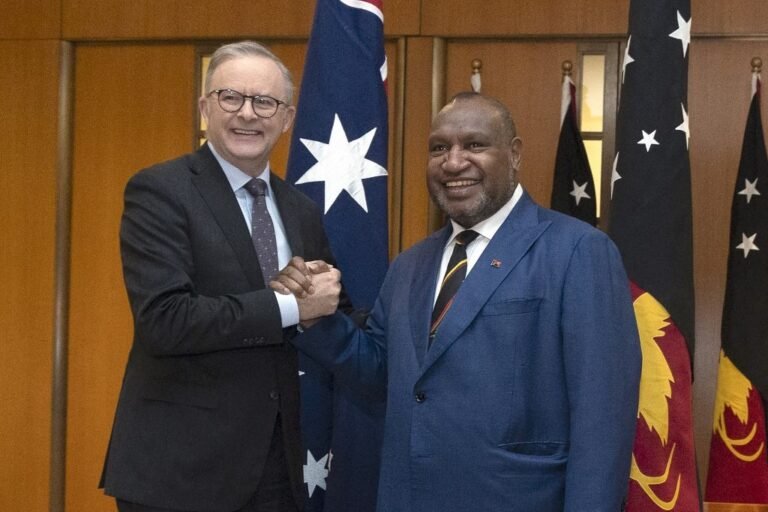Australia is preparing a landmark defense pact with Papua New Guinea (PNG), signaling a major step forward in security cooperation between the two close neighbors. The agreement aims to formalize mutual defense commitments and reflects rising concerns over shifting power dynamics in the Pacific region, particularly China’s growing influence.
Prime Minister Anthony Albanese confirmed the plan, stressing that Australia would not “sit back” if PNG were threatened or attacked. His remarks underscore Canberra’s intention to reinforce its role as PNG’s primary security partner, while also sending a broader message about Australia’s commitment to regional stability.
The defense pact is expected to include provisions for joint military exercises, intelligence sharing, and expanded training programs for PNG’s defense forces. Analysts say the agreement will enhance interoperability between the two countries, ensuring they can respond together to a wide range of security challenges, from conventional threats to natural disasters.
For PNG, the deal represents a chance to strengthen its defense capabilities while deepening its partnership with its closest ally. The Pacific nation has long relied on Australia for security assistance, but the new pact elevates this support to a formal, treaty-level commitment. Leaders in Port Moresby have welcomed the initiative, describing it as essential to safeguarding sovereignty and ensuring long-term stability.
Regional experts say the timing of the pact is significant. China has expanded its influence in the Pacific through infrastructure investment, aid, and security partnerships, raising concerns among Western nations about Beijing’s strategic intentions. In 2022, China signed a controversial security agreement with the Solomon Islands, sparking fears of a potential military presence in the region. By strengthening ties with PNG, Australia is seeking to reassure its neighbors and counterbalance China’s reach.
The Albanese government has placed renewed emphasis on Pacific diplomacy, framing the region as central to Australia’s national security strategy. This includes not only defense agreements but also economic support, climate initiatives, and development aid. Canberra’s approach is designed to strengthen trust and prevent external powers from filling gaps in the region’s security architecture.
Domestic reaction in Australia has been largely supportive, with lawmakers highlighting the importance of protecting shared interests in the Pacific. Some analysts, however, caution that the pact could further strain relations with China, already tense over trade disputes, military competition, and human rights issues. They argue that while bolstering regional alliances is necessary, careful diplomacy will be required to avoid escalating tensions.
For PNG, closer security ties come with opportunities and challenges. While the pact enhances its defense capacity, it also risks drawing the country deeper into strategic rivalries between major powers. Leaders in Port Moresby have emphasized the need to ensure that the agreement serves PNG’s national interests and does not compromise its sovereignty or independence.
The pact also highlights the growing trend of minilateralism in the Pacific, where small groups of countries are forming targeted agreements to address shared concerns. Observers say such arrangements reflect the urgency of responding to evolving threats in a fast-changing regional environment.
Negotiations on the Australia Papua New Guinea defense pact are expected to conclude in the coming months, with both governments eager to finalize the terms. Once signed, the agreement will mark a historic step in formalizing one of the Pacific’s most important security relationships.
As regional dynamics continue to shift, the pact underscores the central role of alliances in maintaining stability. For Australia and PNG, it is both a strategic necessity and a symbol of enduring partnership in the face of uncertainty.







